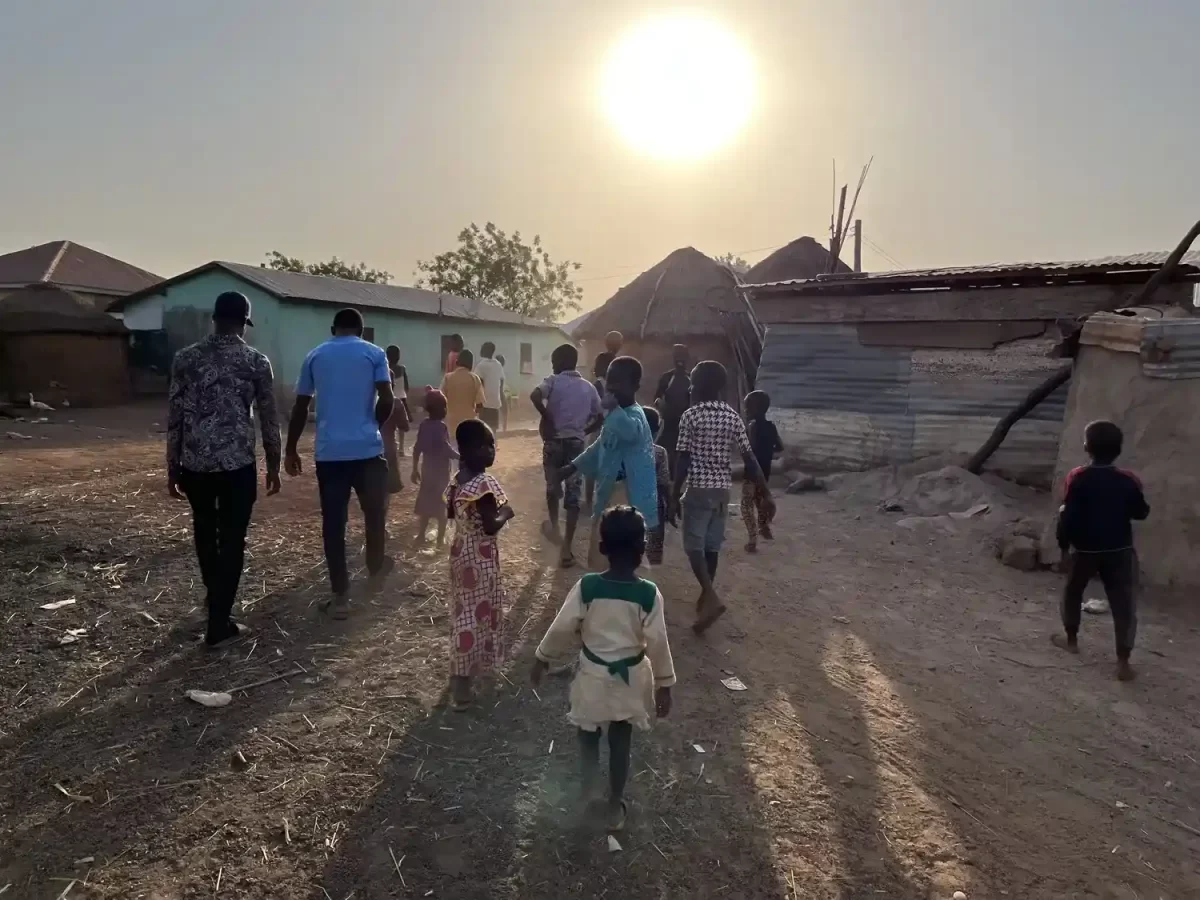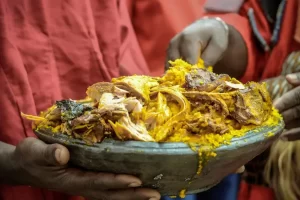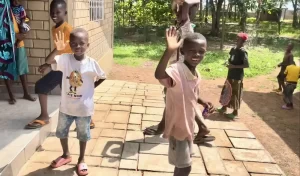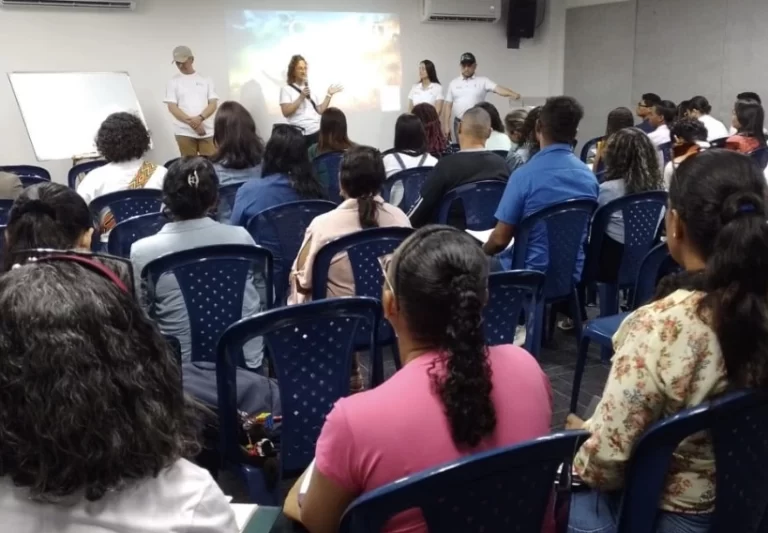
Living in Community: Janice’s Experience in Ghana
Janice, one of FAC’s International Workers, has been serving in Ghana since January 2020. She has a profound love for the Ghanaian people and is witnessing the incredible ways God is working. We asked Janice, who grew up in Canada, to share her insights on what living in community looks like in Ghana!
FAC: “What does collective Ghanaian culture look like played out in everyday interactions? What does it look like for the believers to share everything together?”
 JANICE JABAB: “It is amazing to see the way that people interact with each other on a day-to-day basis (truly, so different from our culture in Canada). For one thing, everyone is regarded as a family member. We refer to other women as “Auntie,” “Mama” or “Grandma” regardless if she is a stranger or not. Lucy will grow up referring to everyone as Auntie, Uncle, Mama or Grandma etc. There is definitely a collective effort in childrearing.
JANICE JABAB: “It is amazing to see the way that people interact with each other on a day-to-day basis (truly, so different from our culture in Canada). For one thing, everyone is regarded as a family member. We refer to other women as “Auntie,” “Mama” or “Grandma” regardless if she is a stranger or not. Lucy will grow up referring to everyone as Auntie, Uncle, Mama or Grandma etc. There is definitely a collective effort in childrearing.
For example, Lucy is often passed around during church services to other kids as young as 8 or 9 to other adults without thought or question. I don’t think that is something that would happen in Canada (I think it’s more typical to assume that the child would want to stay with the mother or father, and that one would be overstepping boundaries if they were to intervene). Personally, this has been such a wonderful but at times difficult cultural difference to navigate!
I love the openness and hospitality of the Ghanaian culture, but it can be difficult for me to be easygoing when other people share water or feed Lucy foods that we wouldn’t typically say are “baby-friendly” in Canada, or even for hygienic purposes. I have definitely learned (and am still learning!) how to let go and embrace the culture and submit my worries to God by trying to replace my anxieties (ie: she will get sick) with God’s truth and trust in Him (ie: Thank God Lucy is a healthy girl with a strong, healthy immune system).

In Canada, every person typically eats from their own plates during mealtime with their own designated portions. In Ghana, family members and friends will eat from one bowl with their hands (typical to eat local food with hands) in groups of 2-3. It is a social norm to extend an invitation by saying, “You’re invited,” to anyone who comes near you while you’re eating. Even when you’re travelling on a local bus and you buy something to eat from a street vendor, it is a common courtesy to extend the invitation to everyone else around you on the public transport bus by saying, “You’re invited!”. Yesterday, we were driving home from one town to our city and we picked up a stranger on the road who was travelling in the same direction we were heading (again, another common experience here).
I always joke with Enoch about how peculiar it is that we always learn that there is some form of connection with the strangers we meet. Once you find out which community or tribe they’re from, there is always some form of connection between the people you know. This has happened a number of times with the people we’ve picked up along the way. Enoch was snacking on some local food and he extended his invitation to our new friend.
Another time, I drove a university student who was filling his cooking gas cylinder and was waiting for a local taxi back to the campus, near our house. A few months later, I unknowingly invited him for dinner because of the situation that allowed for it in which we had prepared additional food and there were some university students around that had just finished their work on a construction site near our house.
I didn’t recognize him until he reminded me who he was. He also knew Enoch because they were from the same tribe. It’s comical to me as a Westerner these little coincidences happen, but it really demonstrates that this mindset in which you prioritize the well-being of the collective group opens up the opportunity to develop meaningful relationships. We as North Americans might be missing out on these opportunities to form meaningful relationships if we are closed off to these opportunities to get to know others, due to our individualistic and self-sufficient way of life.

A traditional Ghanian dish, Kpokpoi/Kpekple | Photo by Nathaniel Abadji on Unsplash
One cute little story I always think back fondly of was from a few years back in which I was talking with a young student when another one of his peers passed by. The peer was sent to town to buy something for his mother, but he wasn’t wearing any sandals. Upon seeing us, he stopped to say hello and took the sandals of his friend and continued his way to town. When he came back, he removed the sandals and continued walking back to his house.
This was such an endearing moment of culture shock for me because the whole transition was so seamless and effortless. It’s like they barely even talked or asked permission if he could borrow his friend’s sandals. Of course, the two boys were very good friends and had an existing relationship…but, I just remember thinking how that perfectly demonstrates communal living. The mentality is very much one of “If I have something you need, you can have it.”
I honestly feel like I could go on and on about examples! It is always good to reflect and remember the beautiful parts of culture that totally reflect God’s glory.”
You may also be interested in …
- I Will Go: Janice’s Story, October 2023
- An Update from the Jababs, March 2023
- Receive Monthly Ministry Updates from the Jababs!




